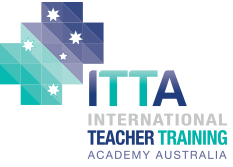
How does it feel to do the TAE course?
I’m beginning to understand the challenges that face my TAE40116 students and it’s worth understanding these at the outset, so that when you start the course you know you are not alone.
A TAE student is an expert in their vocational field, highly experienced and qualified. They usually already have some experience of training others, so logically the TAE should present no problem. It therefore comes as a shock to realise that they are entering into a whole new world. If you have seen the movie “Avatar” you will understand what I mean. The Vocational Education and Training (VET) world is made up of regulatory bodies, legislation, standards, new jargon, rules and things called “training packages”.
Apart from all this unfamiliarity, the TAE student needs to develop new skills they have never needed before. They need to learn how to read in a new way, dissecting sentences and interpreting meanings. In practice, people read what they expect to see, rather than what’s actually there. The first time a student has an assessment returned for re-submit, I can guarantee it’s because they misread a question. In fact, the questions are designed to reveal these problems at the outset, so that students become aware early in the course of the importance of reading the questions carefully and being sure they have correctly interpreted the meaning and understood what the question is asking of them. It’s pretty hard on people who have such a wealth of expertise in their own field to suddenly realise they are back at square one.
Then the qualification requires a level of writing skills that I believe can be as challenging as writing a PhD thesis. The language of a thesis is convoluted, academic and requires Harvard referencing. VET language is definitely not academic. It is far more challenging. You need to write using ordinary language that is very clear and precise and pitched at the level of the student. This means a different level and style of language for a Certificate I compared with, say, a Diploma student. Additionally, the grammar and spelling needs to be accurate. If you are an engineer, health professional, plumber etc. you may not have had to use such a high level of written language for a long time.
On top of that, the qualification requires documents to be created to a standard that can be used in the workplace. This involves word processing. Many people who use Microsoft Word or equivalent are self-taught. They manage somehow, but the intricacies of formatting are often beyond them. Imagine having to figure out what to say while typing with two fingers and at the same time formatting the document so it is professionally presented.
So what is the secret to survival? I believe it’s personal resilience. This course is emotionally demanding as well as intellectually demanding, but it’s a great feeling when you succeed. Remember you are not alone and your trainer is there to help you.
Sandy


